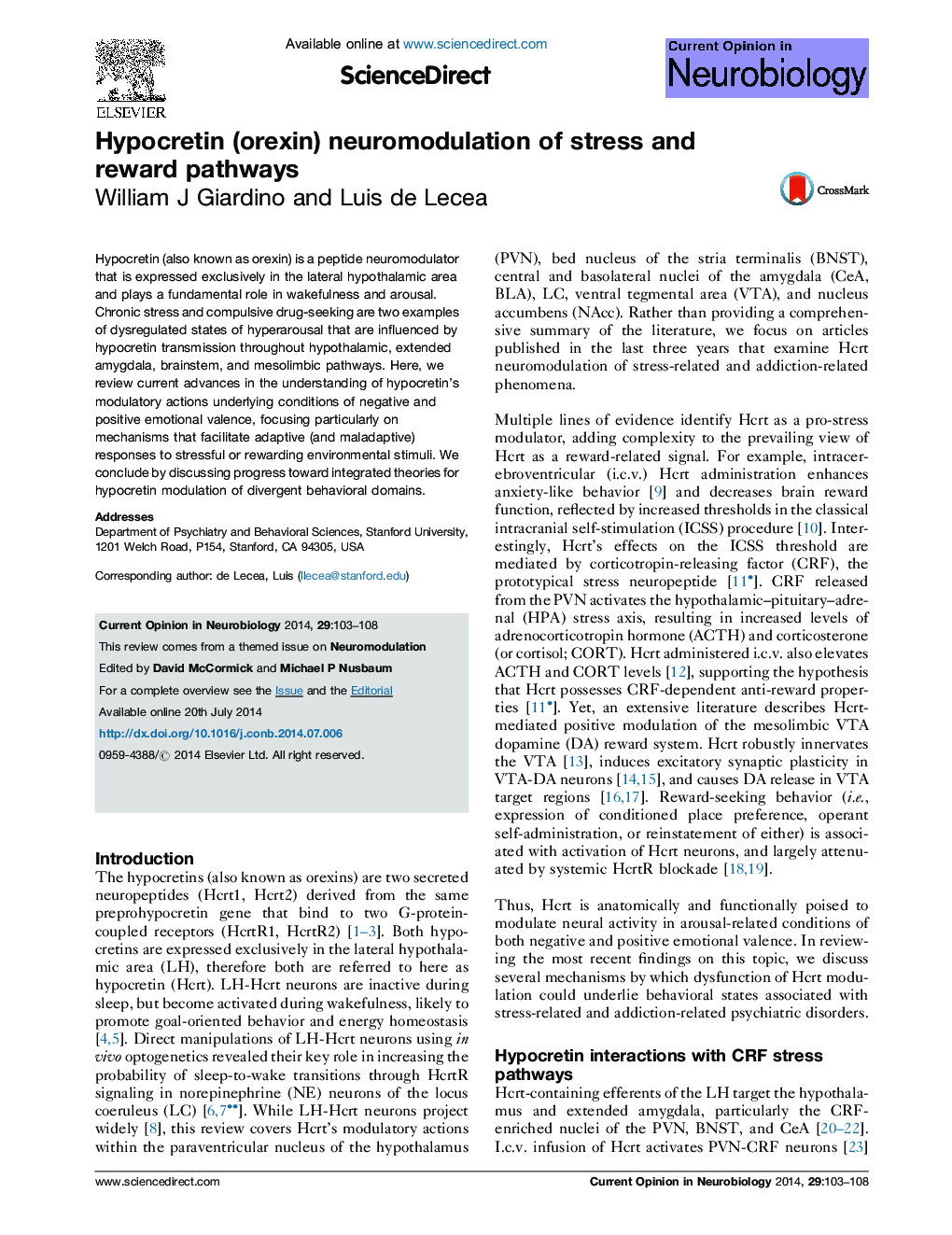| Article ID | Journal | Published Year | Pages | File Type |
|---|---|---|---|---|
| 4334201 | Current Opinion in Neurobiology | 2014 | 6 Pages |
•Hypocretin modulates neural transmission in stress-related and reward-related brain areas.•Interactions between hypocretin and CRF can produce negative affective states.•Hypocretin-induced mesolimbic dopamine plasticity may potentiate reward-seeking.•Dysregulated hypocretin modulation may underlie disorders of stress and addiction.
Hypocretin (also known as orexin) is a peptide neuromodulator that is expressed exclusively in the lateral hypothalamic area and plays a fundamental role in wakefulness and arousal. Chronic stress and compulsive drug-seeking are two examples of dysregulated states of hyperarousal that are influenced by hypocretin transmission throughout hypothalamic, extended amygdala, brainstem, and mesolimbic pathways. Here, we review current advances in the understanding of hypocretin's modulatory actions underlying conditions of negative and positive emotional valence, focusing particularly on mechanisms that facilitate adaptive (and maladaptive) responses to stressful or rewarding environmental stimuli. We conclude by discussing progress toward integrated theories for hypocretin modulation of divergent behavioral domains.
